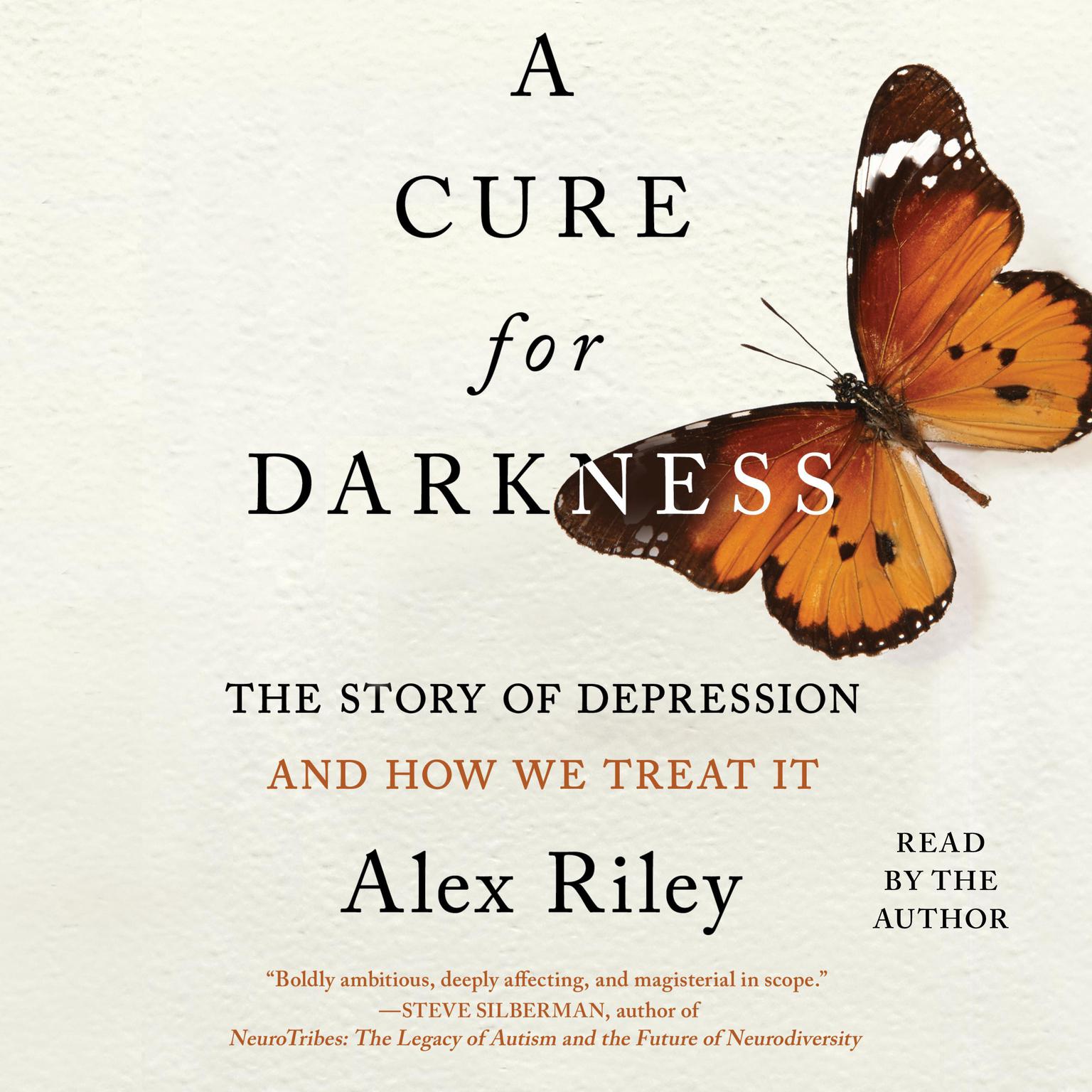 Play Audiobook Sample
Play Audiobook Sample
A Cure for Darkness: The Story of Depression and How We Treat It Audiobook
 Play Audiobook Sample
Play Audiobook Sample
Quick Stats About this Audiobook
Total Audiobook Chapters:
Longest Chapter Length:
Shortest Chapter Length:
Average Chapter Length:
Audiobooks by this Author:
Publisher Description
A fascinating look at the treatment of depression, blending journalism, science, history, and memoir, by an award-winning science writer.
What is depression? Is it a persistent low mood or a complex range of symptoms? Is it a single diagnosis or a diversity of mental disorders requiring different treatments? In A Cure for Darkness, science writer Alex Riley explores these questions, digging into the long history of depression and chronicling the lives of psychiatrists and scientists who sought cures for their patients.
Since 2015, Riley has received both cognitive behavioral therapy and antidepressants for his own depression. Throughout his treatment, he wondered—are antidepressants effective? Do short-term talking therapies actually work? And what treatments are on the horizon for those who don’t respond to these first-line treatments? Expanding from his own experience, he tracks treatments through history, from the “talking cure” to electroconvulsive therapy to magic mushrooms. With depression fast becoming the leading burden of disease around the world, the future of mental healthcare depends not just on the development of new therapies, but on increasing access for people who are currently without. Reporting on the field of global mental health from its colonial past to the present day, Riley highlights a range of scalable therapies, including how a group of grandmothers stands on the frontline of a mental health revolution.
Weaving in personal and family history, A Cure for Darkness is a gripping narrative journey and a surprisingly hopeful work that delves deep into the science of mental health.
Download and start listening now!
“Pervasive but too rarely discussed, depression finally gets the careful, thorough, and humane history that it deserves…In this vivid narrative, Alex Riley brings to life the often flawed, always fascinating characters behind each successive theory and treatment.”
— Eva Holland, author of Nerve
Quotes
-
“Boldly ambitious, deeply affecting, and magisterial in scope, A Cure for Darkness is a milestone in the literature of clinical depression, humanizing the global quest to unlock the secrets of a profoundly disabling disorder…It’s a masterpiece.”
— Steve Silberman, New York Times bestselling author -
“[This] remarkable book shines like a light against the night itself.”
— Deborah Blum, author of Love at Goon Park -
“One of the best overall books on depression that I’ve seen.”
— Nassir Ghaemi, author of A First-Rate Madness
A Cure for Darkness Listener Reviews
Be the first to write a review about this audiobook!
About Alex Riley
Alex Riley is an award-winning science writer and the author of A Cure for Darkness: The Story of Depression and How We Treat It, his first book. He received the 2019 British Association Science Writers Award for Best Feature (Specialist) for his reporting on The Friendship Bench, a project that began in Zimbabwe in 2006 and has since provided mental health care to thousands of people in New York. A former research scientist, he has co-authored peer-reviewed scientific papers while working at the Natural History Museum in London. Since leaving academia in 2015, he began writing popular science articles for magazines such as New Scientist, PBS’s NOVA Next, BBC Future, Mosaic Science, Aeon, and Nautilus Magazine.


